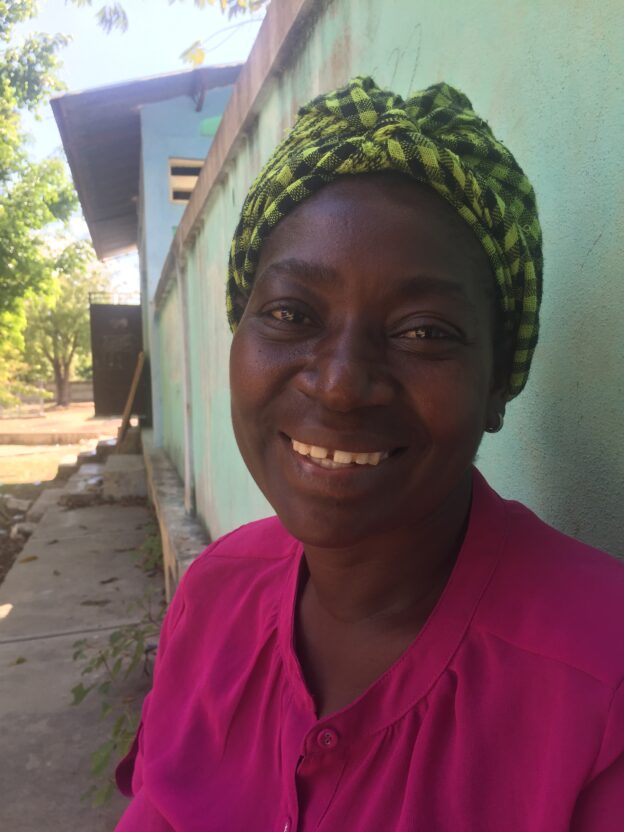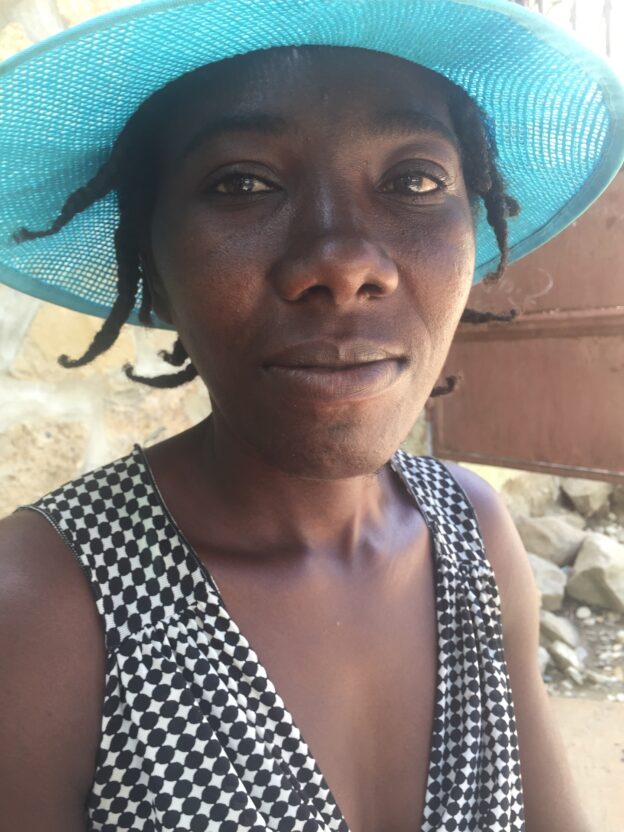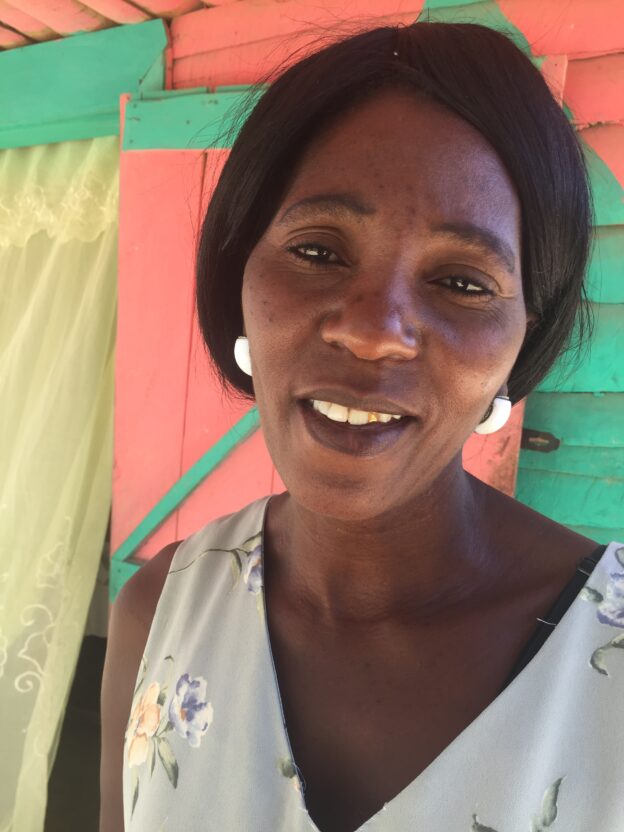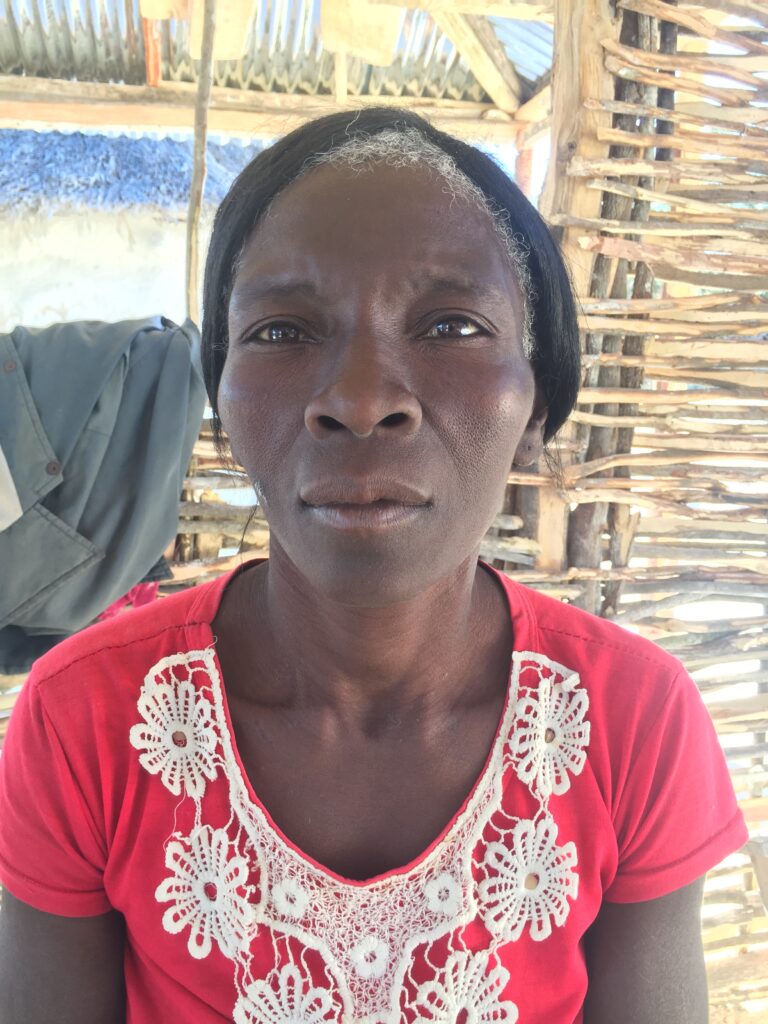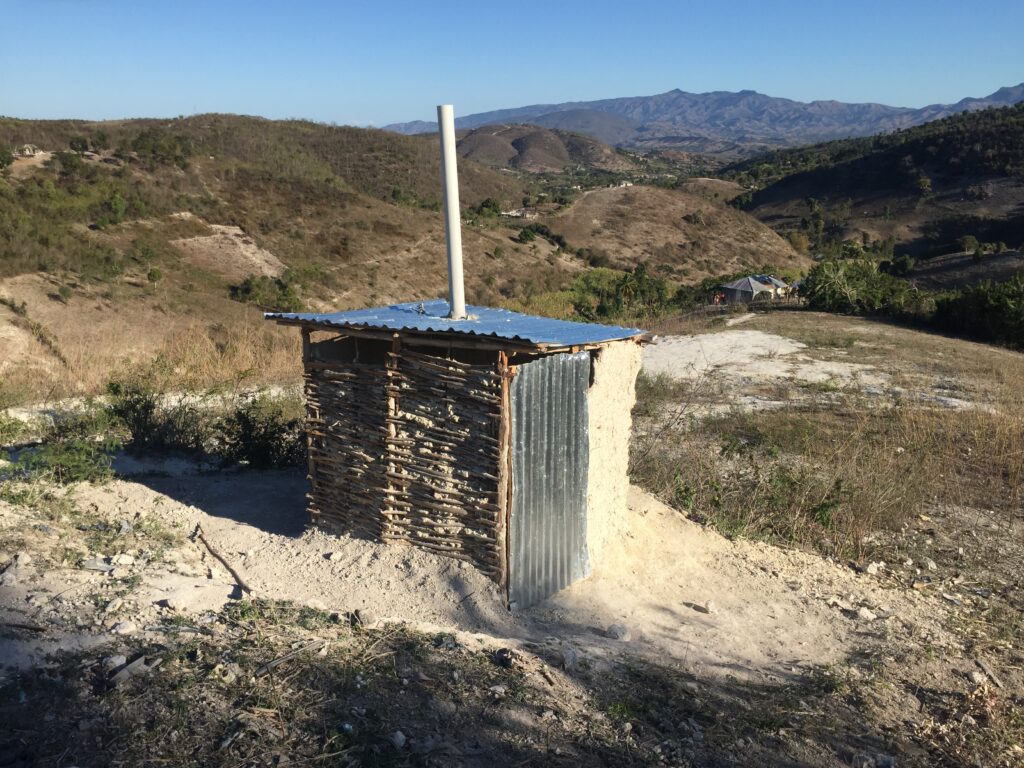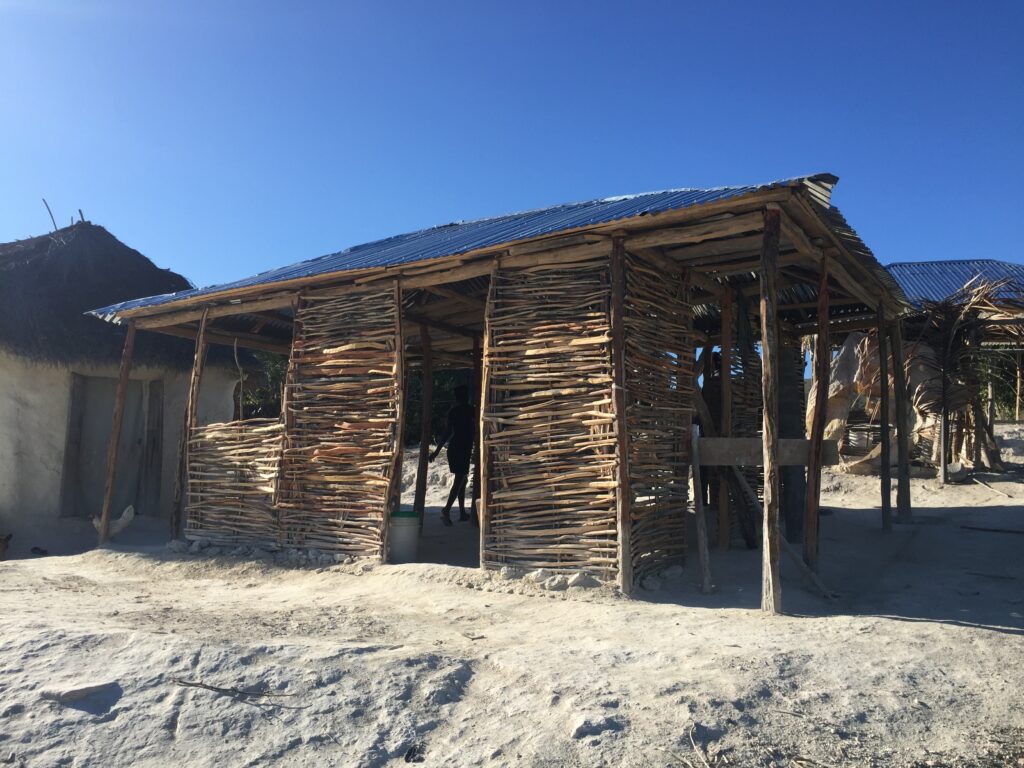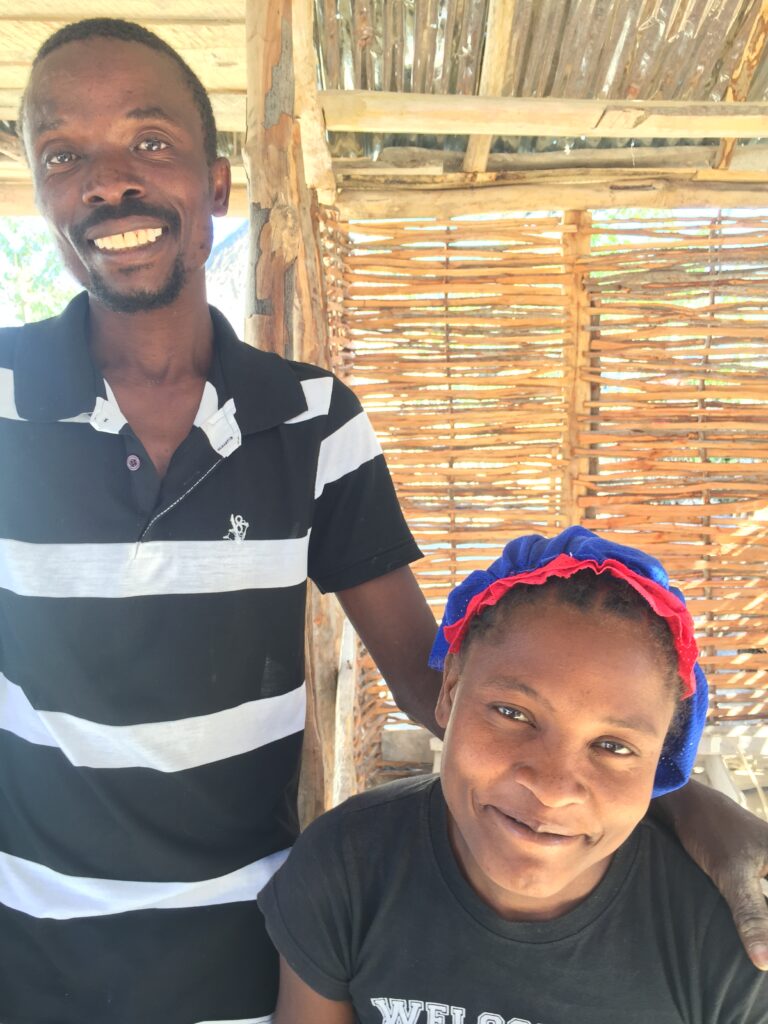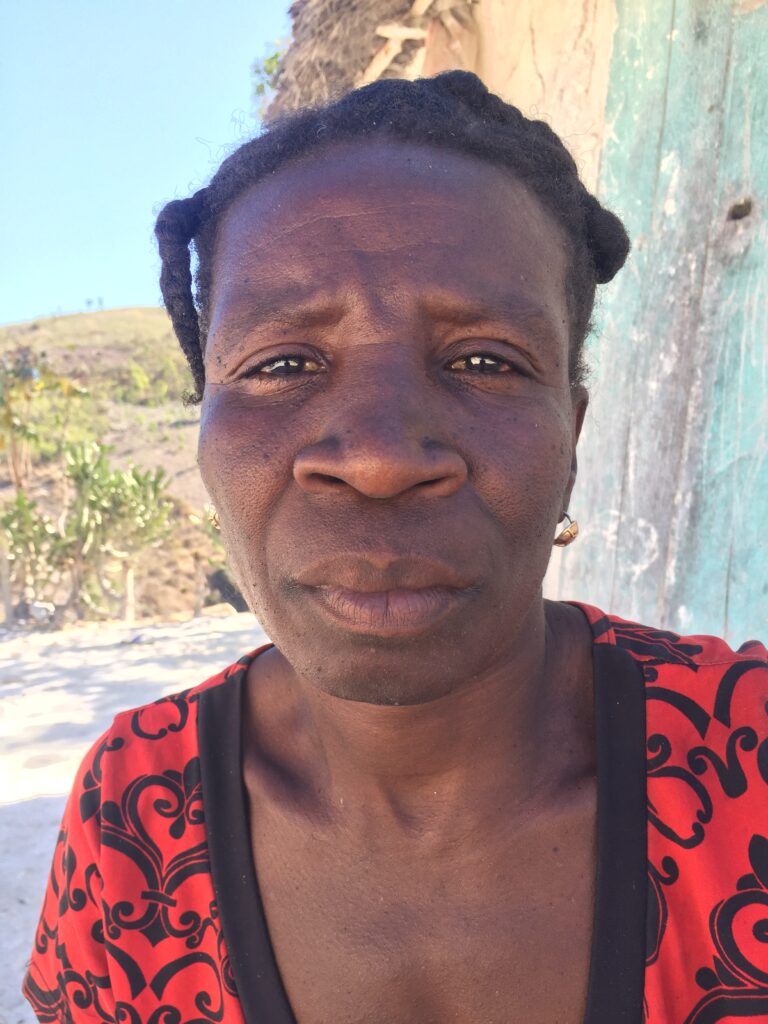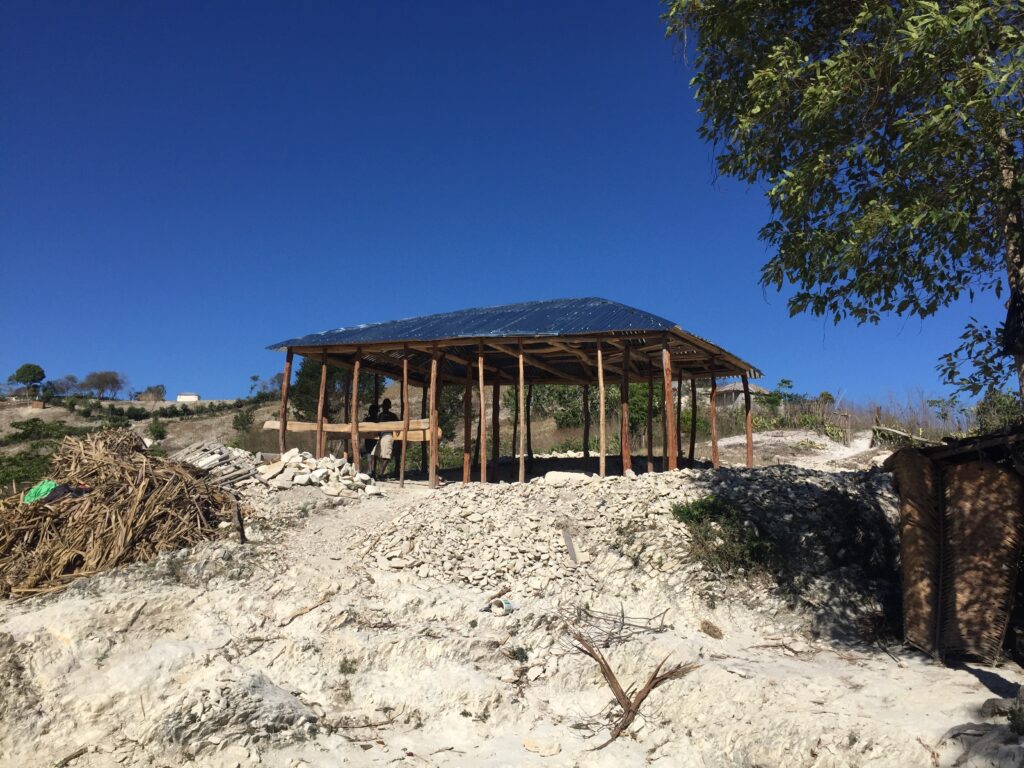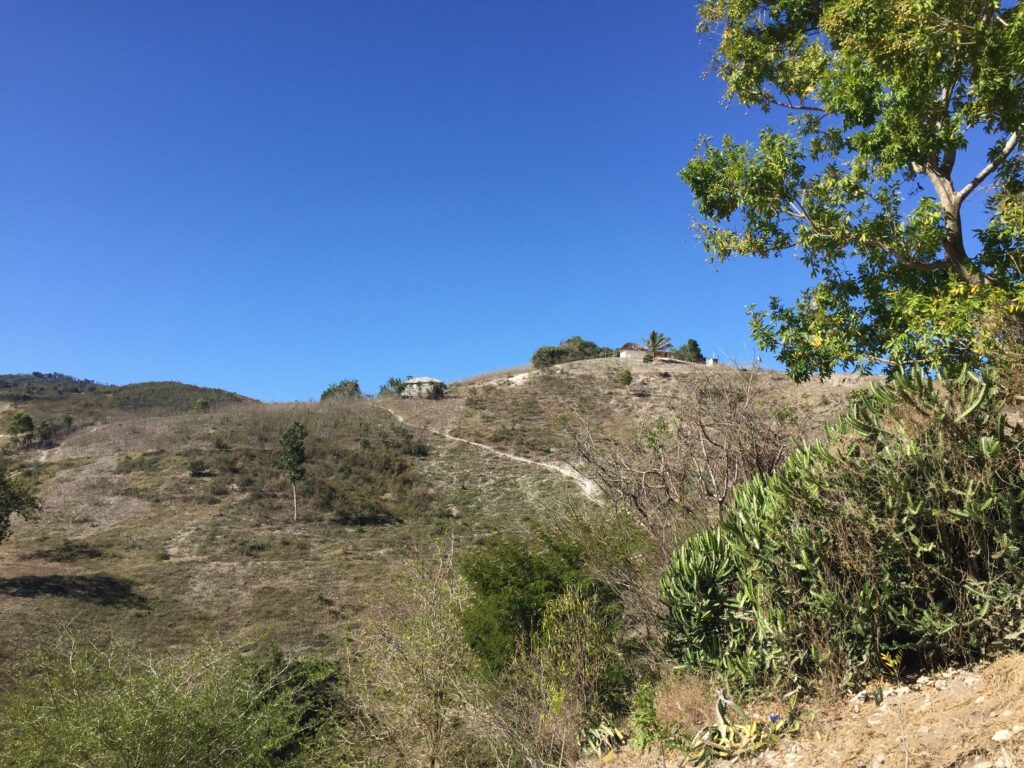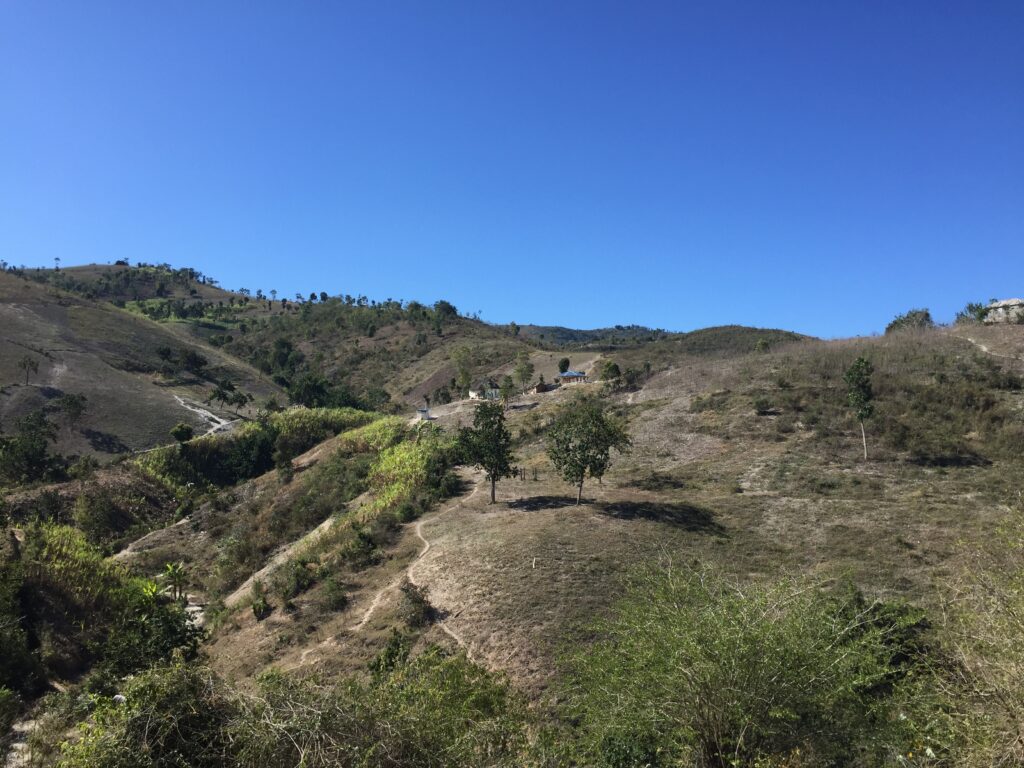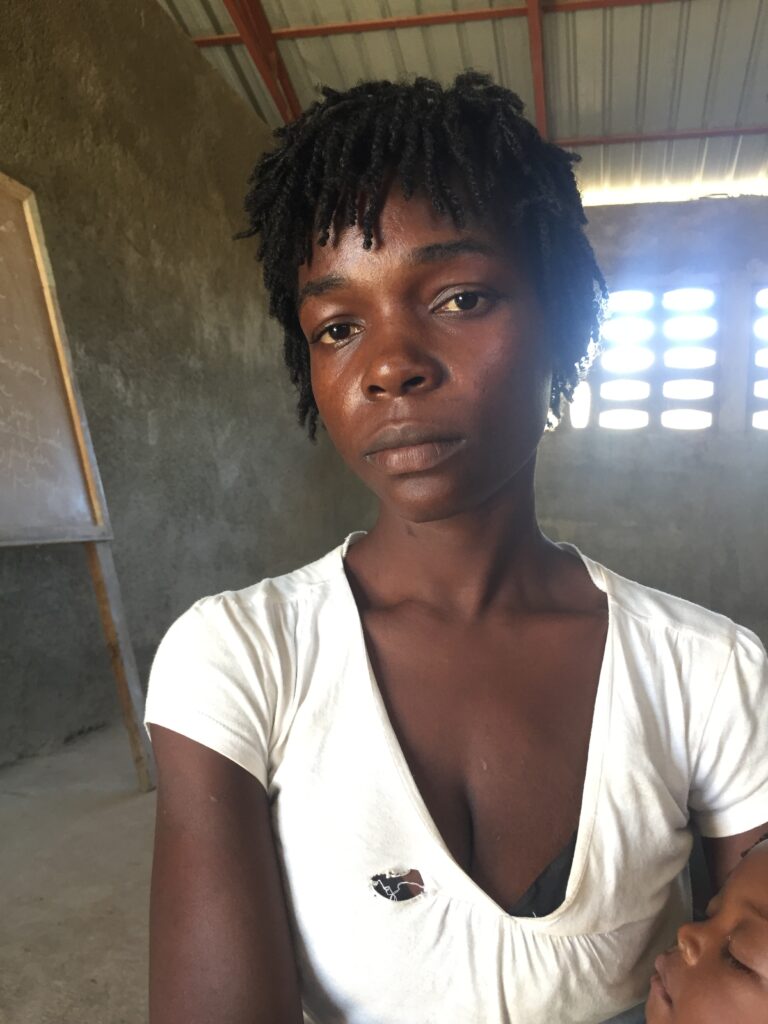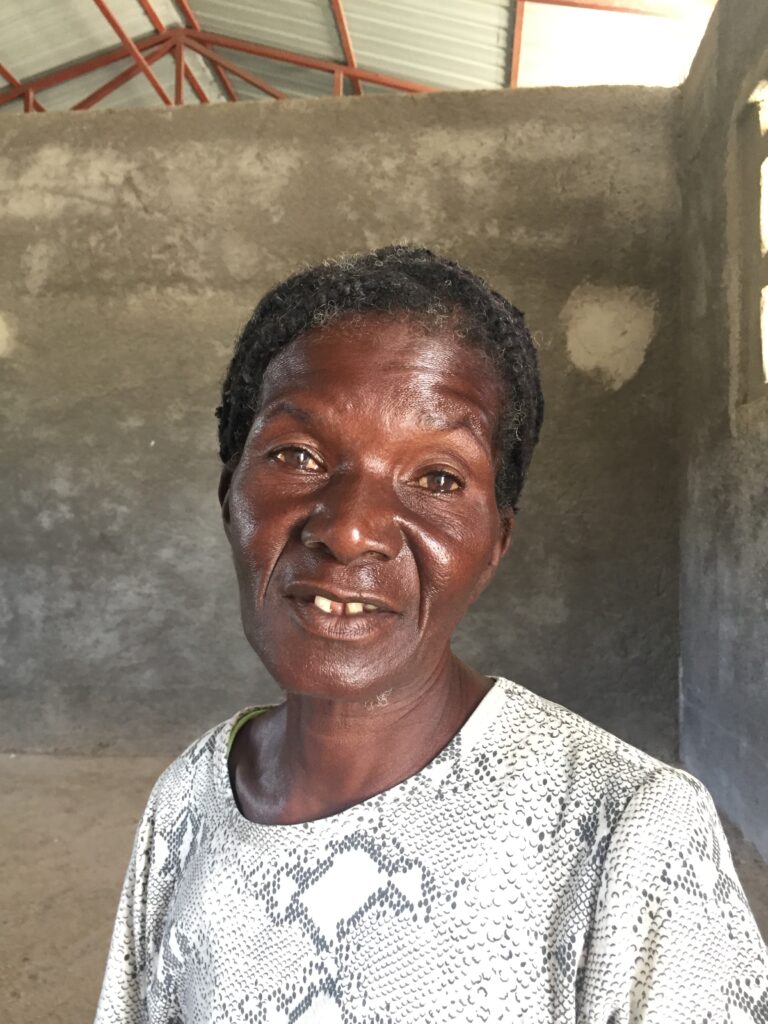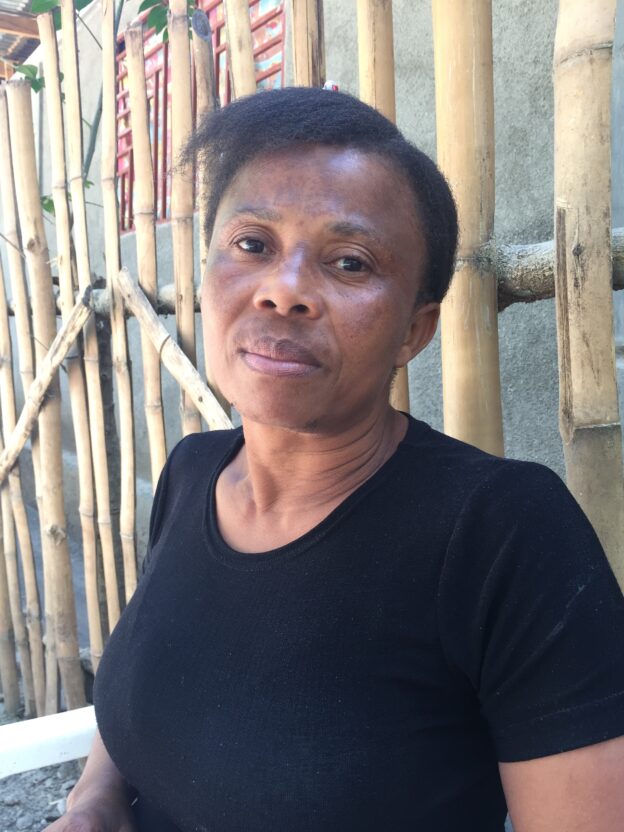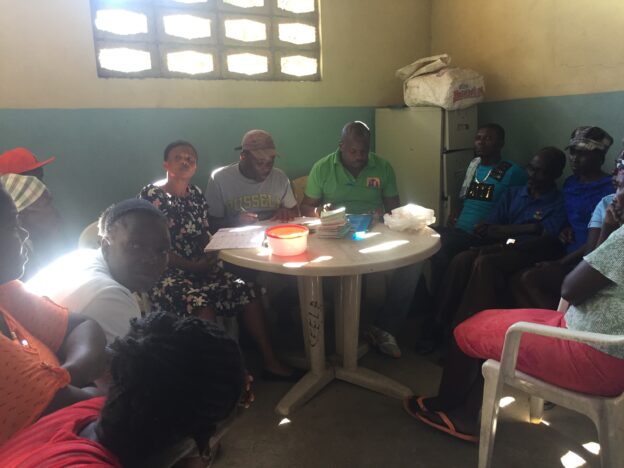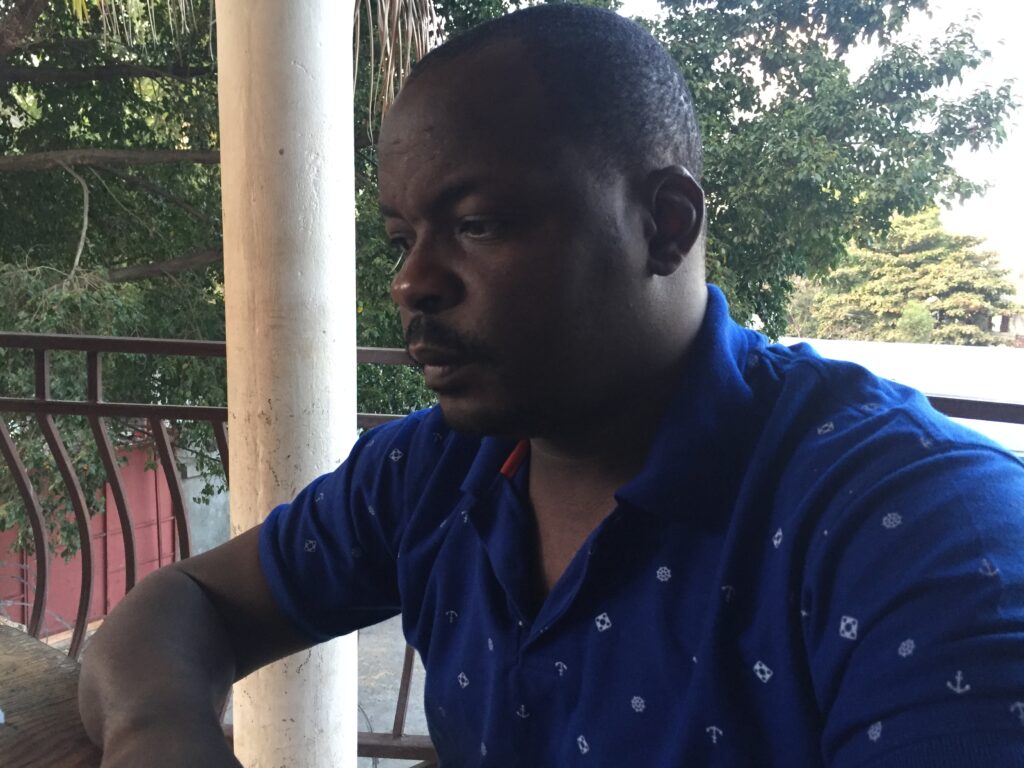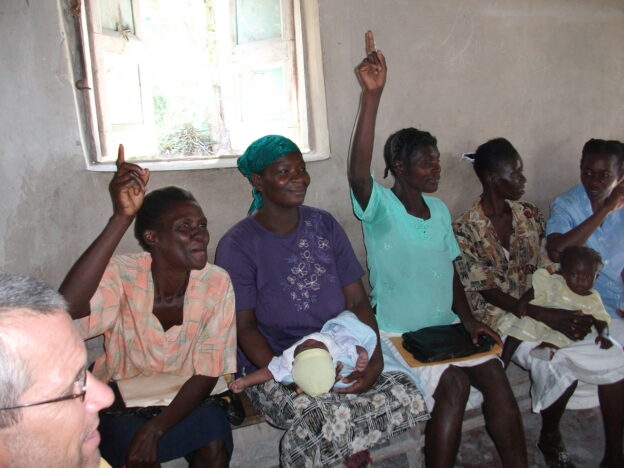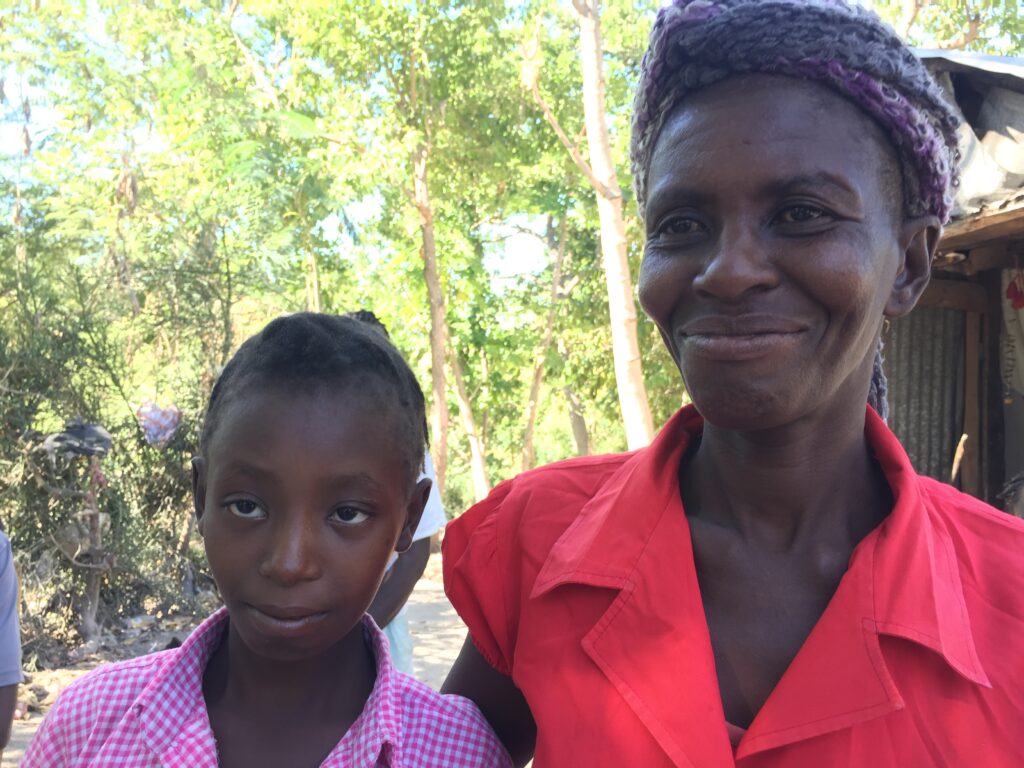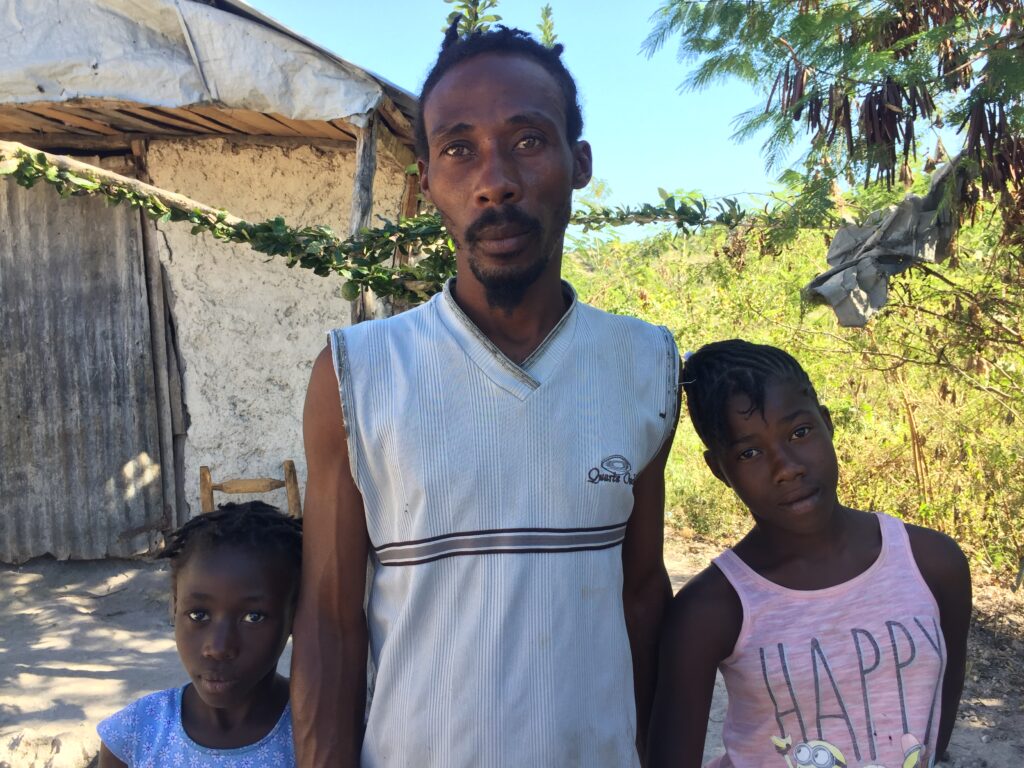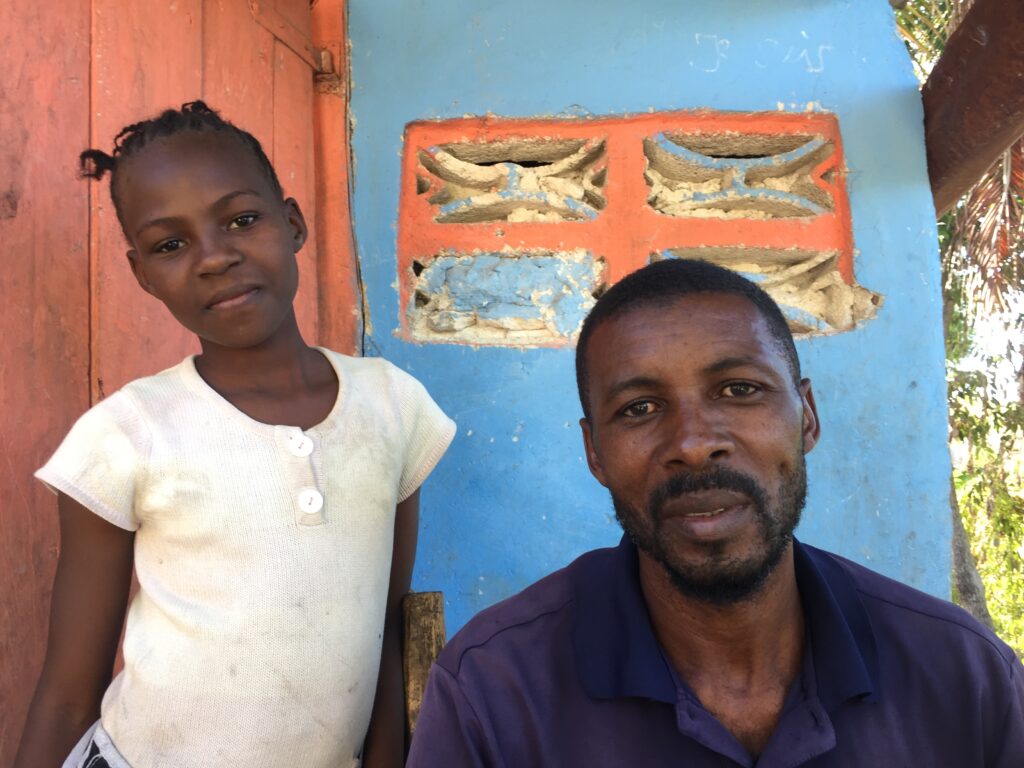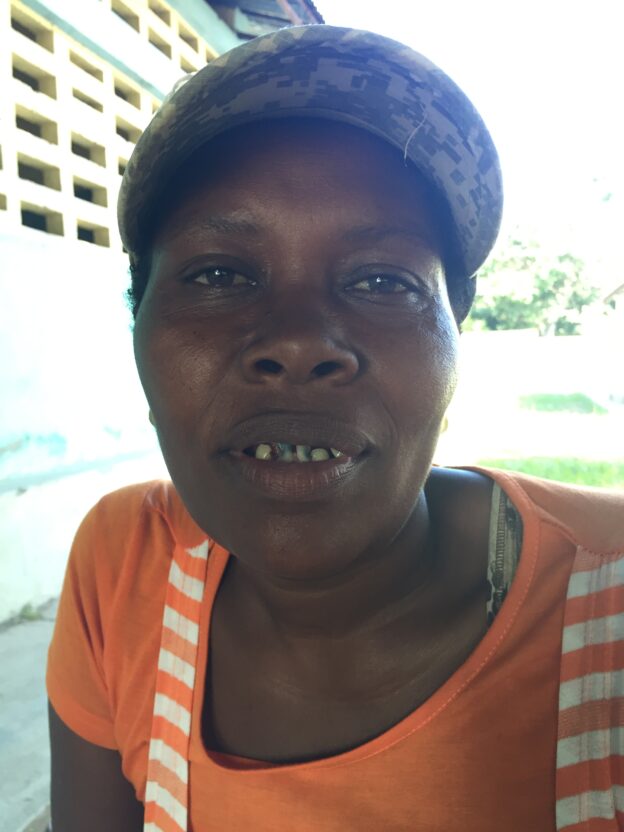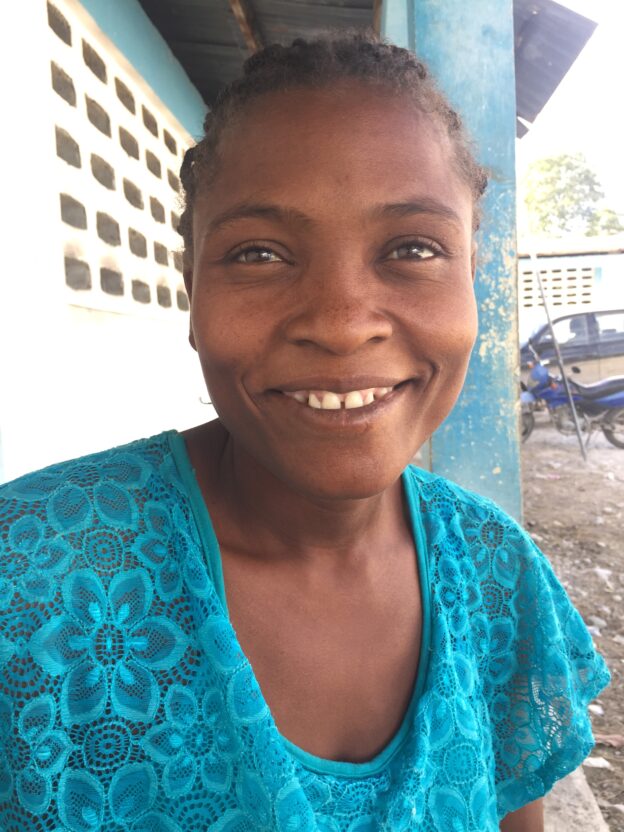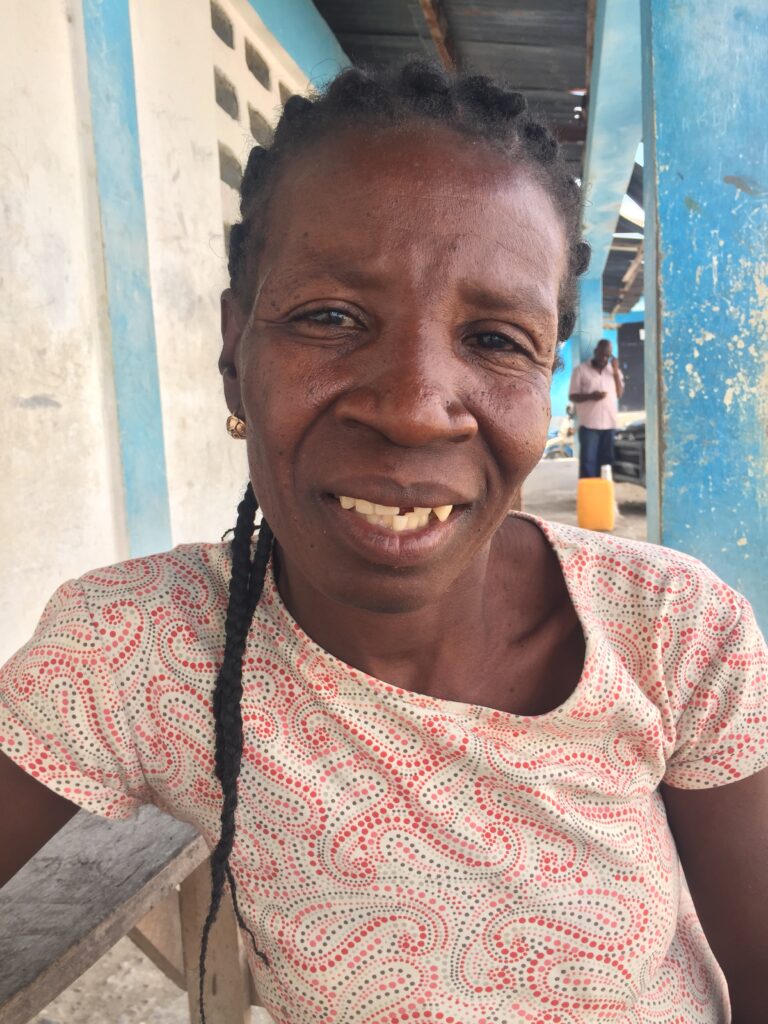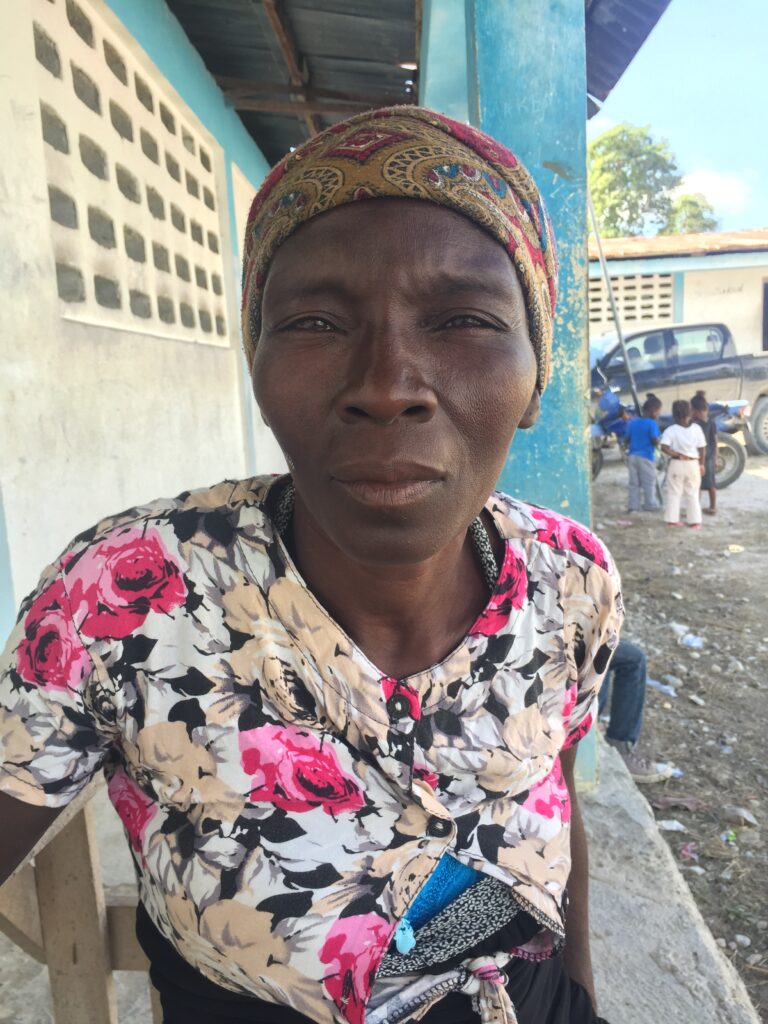Sophonie Duclaire lives with her husband and three of their five children near the little market at the Palmis Tanpe intersection, where merchants sell seasonal fruit and charcoal to motorists passing along the national highway through Savanèt Kabral, in Tomond. Her two oldest kids were taken by members of her family when they reached secondary school and Sophonie could no longer afford school fees. The more advanced classes are more expensive, and Sophonie couldn’t hope to pay.
Sophonie had been sick, and she and her husband had sold everything to try to get her well again. When CLM staff members first met her, she was sitting in the yard in front of her shack, across from a pile of the filthy clothes and bedsheets that she had used during a short hospital stay. She couldn’t lay her hands on the ten gourds she needed to buy laundry soap to wash them. That’s less than 15 cents. And she had nothing to eat in the house. She couldn’t take her medications without food.
When she joined the program, she and her husband had nothing except a small garden on family land, but they supported the family as best they could. He would help out in neighbors’ fields whenever he could find the work. He’d get 100 gourds per day, just over a dollar right now. Sophonie did laundry for neighbors. They wouldn’t pay her, but they would give her food that she could take home to her family. “Back then, you wouldn’t have accepted a drink of water from me.” It is her way of saying that she was so downtrodden that nobody would have wanted to associate with her at all. “I was living in such a broken-down shack. I had to bend over to walk in, and everything we had was drenched by every rain. And we were, too.”
The couple continued to make an effort to keep the younger children in school, but just this year they were running out of ways to pay. Sophonie became part of a CLM savings club when she joined the program, but she had to receive her payout out of turn. The principal had already sent her children home because she hadn’t paid any of the tuition. She used her second turn at the savings-club pot to buy the lumber she needed for her home. “I’m not living under water anymore.”
She chose two goats and a pig as her enterprises, and she and her husband have been taking great care of them. The pig is growing and pregnant.
But the progress she’s made with her goats is remarkable. Her collection has gone from two to ten in just over a year. The original two both provided kids, so that brought her to four. But a couple of different neighbors offered her the chance to buy mature nanny-goats. That really showed how her life was changing. “Before, no one would have offered me the chance to buy a goat. They wouldn’t have thought of me.” Before long, each of those nannies had delivered a pair of kids.
She made the purchases by borrowing money from her Village Savings and Loan Association. She and her fellow members gather every week, and at each meeting every member buys from one to five shares. The association makes interest-bearing loans to its members out of the funds it collects, so the shares’ value grows.
Sophonie has quickly learned to use her association’s loans well. After paying back the money she used to buy the goats, she took another loan and used it to buy wood to make charcoal. She’s been selling 4-5 bags a week at the little market in nearby. At current prices, that’s almost 3000 gourds. She hasn’t yet been able to set enough aside to run her business without loans, but she’s made a lot of progress nonetheless.
She’s saving up as much of the profit as she can, though, because she has a plan. She’d like to use it along with money from the sale of a goat or two to buy a cow. “Things can happen — like a death in the family — that just a goat can’t help you with. When the CLM program leave us, I don’t want to be forced backward.”
